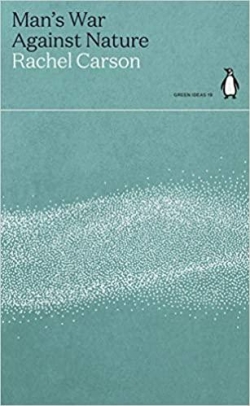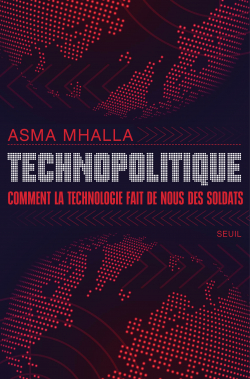Rachel Carson, figure majeure de la pensée écologiste du XXe siècle, est plutôt méconnue du grand public, bien que ses travaux aient une résonance particulière face aux enjeux environnement actuels. Pour en parler, le Book Club reçoit la romancière Isabelle Collombat et l'essayiste Thierry Paquot.
#bookclubculture #environnement #rachelcarson
________
Venez participer au Book club, on vous attend par ici https://www.instagram.com/bookclubculture_
Et sur les réseaux sociaux avec le hashtag #bookclubculture
Retrouvez votre rendez-vous littéraire quotidien https://youtube.com/playlist?list=PLKpTasoeXDrqL4fBA4¤££¤6Le Book Club18¤££¤
ou sur le site https://www.radiofrance.fr/franceculture/podcasts/bienvenue-au-book-club-part-2
Suivez France Culture sur :
Facebook : https://fr-fr.facebook.com/franceculture
Twitter : https://twitter.com/franceculture
Instagram : https://www.instagram.com/franceculture
TikTok : https://www.tiktok.com/@franceculture
Twitch : https://www.twitch.tv/franceculture

Rachel Carson
EAN : 9780241514450
Penguin Classics (26/08/2021)
/5
1 notes
Penguin Classics (26/08/2021)
Résumé :
With the precision of a scientist and the simplicity of a fable, Rachel Carson reveals how man-made pesticides have destroyed wildlife, creating a world of polluted streams and silent songbirds.
Over the past 75 years, a new canon has emerged. As life on Earth has become irrevocably altered by humans, visionary thinkers around the world have raised their voices to defend the planet, and affirm our place at the heart of its restoration. Their words hav... >Voir plus
Over the past 75 years, a new canon has emerged. As life on Earth has become irrevocably altered by humans, visionary thinkers around the world have raised their voices to defend the planet, and affirm our place at the heart of its restoration. Their words hav... >Voir plus
étiquettes
Ajouter des étiquettes
Que lire après Man's War Against NatureVoir plus
Critiques, Analyses et Avis (1)
Ajouter une critique
This book is part of the Penguin series “Green ideas”. Rachel Carson was a marine biologist and conservationist. She wrote a book, “Silent Spring”, which had a massive impact on the awareness of the influence of man on nature. This little book I read is one of the chapters of “Silent Spring” where Carson goes through the consequences of using pesticides that kill not only the bug that we want to destroy but also the crops, the fish, the birds, other animals, and the water around these fields that have been drowned in these pesticides… leading to a spring with no songs of birds, no splashing of fish. She also unveils the lack of data on the consequences of all these pesticides on human beings. This text is 60 years old but is still painful to read. Has anything really changed since then?
Lien : https://redheadwithabrain.ch..
Lien : https://redheadwithabrain.ch..
Citations et extraits (1)
Ajouter une citation
Water, soil, and the earth’s green mantle of plants make up the world that supports the animal life of the earth. Although modern man seldom remembers the fact, he could not exist without the plants that harness the sun’s energy and manufacture the basic foodstuffs he depends upon for life. Our attitude toward plants is a singularly narrow one. If we see any immediate utility in a plant, we foster it. If, for any reason, we find its presence undesirable, or even simply a matter of indifference, we may condemn it to destruction forthwith. Besides the various plants that are poisonous to man or his livestock, or crowd out food plants, many are marked for destruction merely because they happen to be in the wrong place at the wrong time, and many others are destroyed merely because they happen to be associates of the unwanted plants. Sometimes we have no choice but to disturb the relationships between plants and the earth, between plants and other plants, and between plants and animals, yet we should do so thoughtfully, with full awareness that what we do may have consequences remote in time and place.
Videos de Rachel Carson (4)
Voir plusAjouter une vidéo
autres livres classés : anthropologieVoir plus
Les plus populaires : Non-fiction
Voir plus
Les Dernières Actualités
Voir plus
Autres livres de Rachel Carson (4)
Voir plus
Quiz
Voir plus
Pas de sciences sans savoir (quiz complètement loufoque)
Présent - 1ère personne du pluriel :
Nous savons.
Nous savonnons (surtout à Marseille).
10 questions
411 lecteurs ont répondu
Thèmes :
science
, savoir
, conjugaison
, humourCréer un quiz sur ce livre411 lecteurs ont répondu






































